I came across this the other day on Africa Online when doing some research on one of the communities that we are working in. It is well written and inline with so many of the feelings that we have been experiencing...
On a quick note, we are doing well. We had a great week and a lot of cool stuff is going on. A few of the highlights that we will ellobrate more on include...Mandy getting a job, moving forward in Mathare-one of the neglected slums of Nairobi and gearing up for some cool stuff happening in February!
By: Gathoni
Give a man a fish he feeds for a day, teach the man to fish and he feeds for a lifetime. The most complex problems in a society can be sometimes be solved by simple ideas and concepts based in old proverbs. It is time we realized that the solution to poverty is not handouts in whatever form they may come, but sustainable long-term solutions that benefit all Kenyans equally. If those in power and those who have the responsibility to vote would take heed to these wise words, the poverty problem would not be what it is today.
The economy may be on the increase and several sectors resuscitated, however the reality is; although the number of those living in areas like Runda and other wealthy suburbs is on the increase, so are those living in Kibera, Mathare Kangemi and other sprawling slums. Even with the increase in fuel prices, it seems that more and more Kenyans are able to afford cars despite the limited infrastructure as is seen with Hummers and other luxurious cars that litter the Nairobi roads during rush hour.
It would be my biggest recommendation for all Kenyans to walk through areas like Kibera and Mathare; I am not talking about slum tourism where their lifestyle is exploited at their expense. What I wish is a simple walk, a mile perhaps in their shoes. Imagine living with millions of other people in approximately 3 sq km, where a trip to the kiosk or bus stop requires you to develop superior navigation of open sewers where faeces and waste form part of the path. Imagine waking up cold, or wet, everyday in your house built of mabati and mud, only to give birth at home because basic hospital services are but a myth. This is how a great majority of us live, and it is not because they are lazy or not like you. It is time we realized that poverty is our problem, and affects us all. How can we expect a safer society when so many live in such deplorable conditions that, crime becomes a lucrative business? How can we expect the economy to grow when such a small population controls so much?
Kenya is one of the most unequal societies in the world. Resource distribution is favorable to the few in power, where the fight for power is entirely among the elite, who wants to safeguard their economic prosperity. It is undeniable that there is money in this beautiful country, what one must ask is why it not trickles to all levels of society. The economy may have improved for you, you make more money than you did 5 years ago, but yet, you still pay your gardener and watchman the same amount you did then. If your basic necessities amounts to more than you pay your unskilled worker, how is he or she supposed to survive with so little?
The poverty problem cannot be successfully addressed without addressing rural poverty, which accounts for the majority of poor who live on $2 or less a day. If more financial investment and development focussed on rural areas, less people would be inclined to leave their farms and shags to move to the city in search of a better life.
Once again elections roll around and we hear the same rhetoric on job creation and poverty alleviation, yet 5 years down the line although some things may have changed, I am yet to hear of long-term solutions that stand a chance of creating change. The middle class is a mere blip on the radar while the gap between the extremely poor and economic elite is vast almost to be measured on the same scale as space.
When I asks around the common consensus is poor governance is to blame for our pink elephant. Our political history created this complex poverty vortex, where the way out seems almost impossible. What is clear then, is we are the architects to our own demise, we choose our leaders and therefore we choose our fate. In this election I would urge everyone to listen to the issues, to the proposed solutions, and to whom these solutions will indeed benefit. When you vote, think about the woman who sells tomatoes on the side of the road, the man who is employed as your guard or gardener but is forced to live in a shack to make ends meet, the graduate who is forced to drive the City Hoppa bus; these people are the majority, and are affected most by the choices we all make.
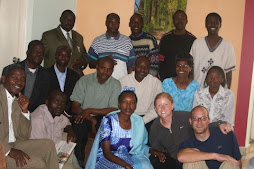
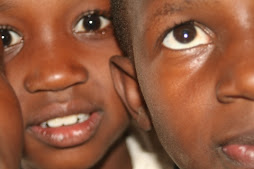
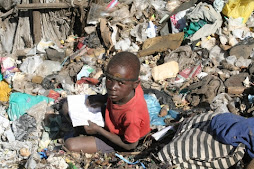
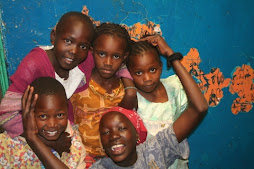
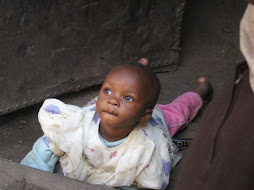

No comments:
Post a Comment